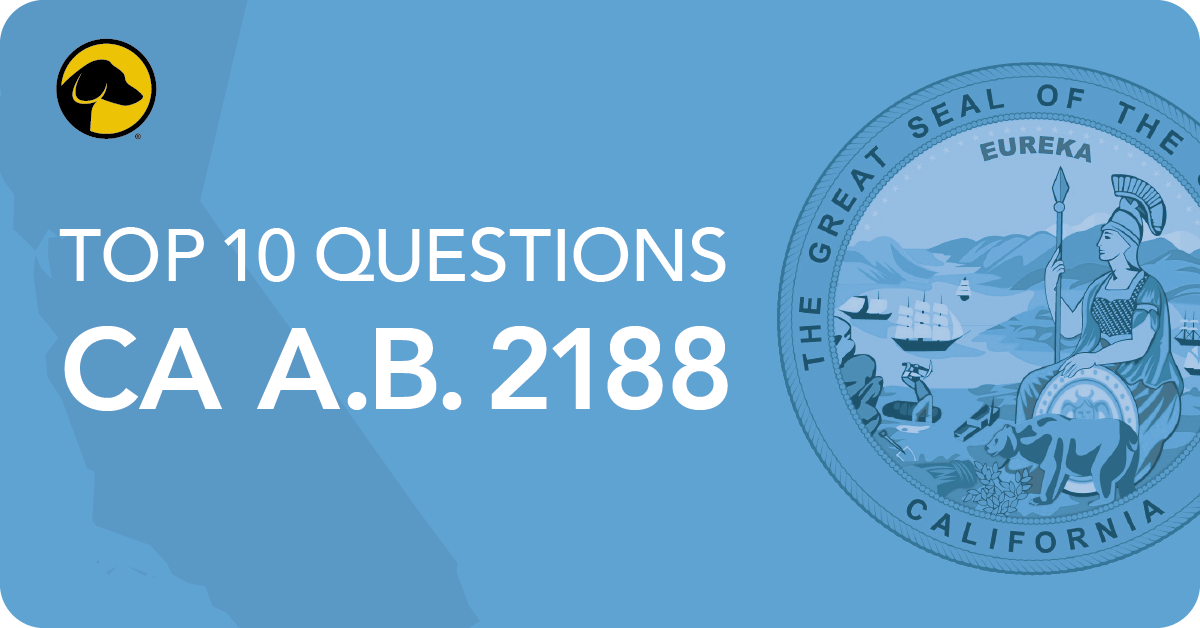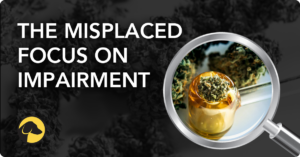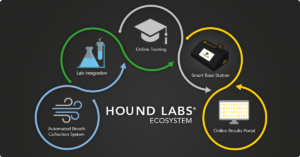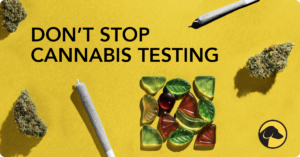
Top Ten Questions About California A.B. 2188
More states are legalizing cannabis, and that means more legislators are also enacting new laws related to workplace cannabis testing. California A.B. 2188 is one of the most recent in a growing number of laws addressing cannabis use and the workplace, and it’s the first law in the Golden State to specifically provide workplace protections for recreational and medical marijuana users.
California has always been a trendsetter for cannabis laws. It was the first state to legalize medical marijuana with Proposition 215 in 1996.1 So it stands to reason that other states with legalized marijuana will likely be watching what unfolds in California to determine if they, too, need to enact workplace protections for cannabis use outside work.
We thought we’d help employers in California – and beyond – by answering some of the most frequently asked questions about CA A.B. 2188. Here’s what you need to know about the bill and how it may impact an employer’s ability to enforce workplace cannabis policies.
1. What does CA A.B. 2188 say?
CA A.B. 2188 prohibits employers from using cannabis tests that detect THC’s non-psychoactive metabolites – the molecules that stay in a cannabis user’s system for days, weeks, or even months. While there are some exceptions, the bill will prevent most employers from discriminating against a person in hiring, termination, or other employment actions based on the individual’s use of cannabis off the job and away from the workplace.2
2. When will CA A.B. 2188 go into effect?
Employers have less than a year to prepare for the new regulations, which take effect starting on January 1, 2024.
3. What is the main objective of the law?
California A.B. 2188 helps protect employees who use cannabis outside of work from discriminatory hiring and employment practices. The law amends the California Fair Employment and Housing Act to prevent employment discrimination based on “an employer-required drug screening test” that detects the presence of “non-psychoactive cannabis metabolites in their hair, blood, urine, or other bodily fluids.”
4. What impact will this have on employers?
Under CA A.B. 2188, many employers will no longer be able to perform workforce drug testing using urine, blood, or hair for cannabis since these tests cannot differentiate between the psychoactive and non-psychoactive components of cannabis. This will be a big change for employers who have relied on these legacy cannabis tests.
However, cannabis breath testing is an effective alternative. The HOUND® CANNABIS BREATHALYZER targets the THC molecule, not its metabolites, to align with laws prohibiting the potential for discrimination based on off-the-job cannabis use. This means California employers will be able to implement a cannabis breath testing program to comply with A.B. 2188.
5. Does CA A.B. 2188 have any exceptions?
The law will not allow employees “to possess, to be impaired by, or to use cannabis on the job.”3
“[It] will permit employers to continue to enforce drug- and alcohol-free workplace policies and continue to test for marijuana so long as the tests are not focused on ‘non-psychoactive’ chemicals in the body,” says Vince Verde, head of the Trial Practice Group at Ogletree Deakins, a leading employment law firm and Hound Labs partner.
Beyond that, positions requiring a federal government background investigation or security clearance will be exempted from the law as will some employees in the building and construction trades. Further, laws that require testing for controlled substances, such as for positions receiving federal funding or being tied to federal contracts, will still stand.4
6. Does breath testing detect the non-psychoactive metabolites of cannabis?
Hound Labs’ cannabis breath test is specific enough to isolate the THC molecule, the psychoactive compound in cannabis, without detecting inactive cannabis metabolites or other cannabinoids that have a different molecular structure.
7. Is the HOUND® CANNABIS BREATHALYZER a viable test type under CA A.B. 2188?
Yes. Workforce drug testing expert, Dr. Barry Sample, says the information provided by a cannabis breath test could be useful for employers focused on deterring use from the workplace. “The much shorter detection window of THC in a cannabis breath test may provide a narrower inference of when cannabis was used relative to when an employee is being tested,” says Sample.
Employers will no longer be able to test for cannabis using sample types that detect non-psychoactive metabolites because metabolites do not indicate recent use, only that a person used cannabis at some point in the past. Legacy cannabis tests — such as urine, hair, and blood which can give positive test results for weeks or even months after cannabis use — won’t be an option for many California employers starting in 2024.
8. Have other states passed similar laws?
California will be the seventh state to enact a law that protects employees’ use of cannabis outside of work. Another 15 states legally protect medical marijuana patients from discrimination for legal cannabis use.5
9. While CA A.B. 2188 applies to California, will other states enact similar laws?
While we can’t predict the future, employment-related laws continue to trend toward additional protections for non-workplace cannabis use.
Faye Caldwell, an attorney focused on workplace drug testing and a managing partner at Caldwell Everson, says these types of laws will continue to be enacted. “Previously, the presence of an illegal drug – even if the person hadn’t recently used it – was enough to remove a person from a position. Because most employees have increased access to legal cannabis, this approach may no longer be seen as an appropriate inquiry or the basis for a decision on employment status,” says Caldwell.
10. What steps can employers take between now and when the bill takes effect?
California employers may want to review and update their workplace drug testing policies and their drug testing protocols. And employers may want to consider leveraging a cannabis breathalyzer as part of a comprehensive testing program to help navigate evolving cannabis laws and lower their exposure to risk.
Hound Labs encourages employers to confer with legal counsel before making any changes to existing drug testing policies.
STAY INFORMED
There’s no need for employers to try to untangle the changes brought about by CA A.B. 2188 on their own. Hound Labs and Ogletree Deakins can help employers successfully navigate testing options and workplace policy changes. Just connect with our team to get started.
Footnotes
1 Ballotpedia
2 Office of Governor Gavin Newsom
3 California Legislative Information
4 IBID
5 Bloomberg Law

May 11, 2023
By JESSICA COHEN TAUBMAN
Share












